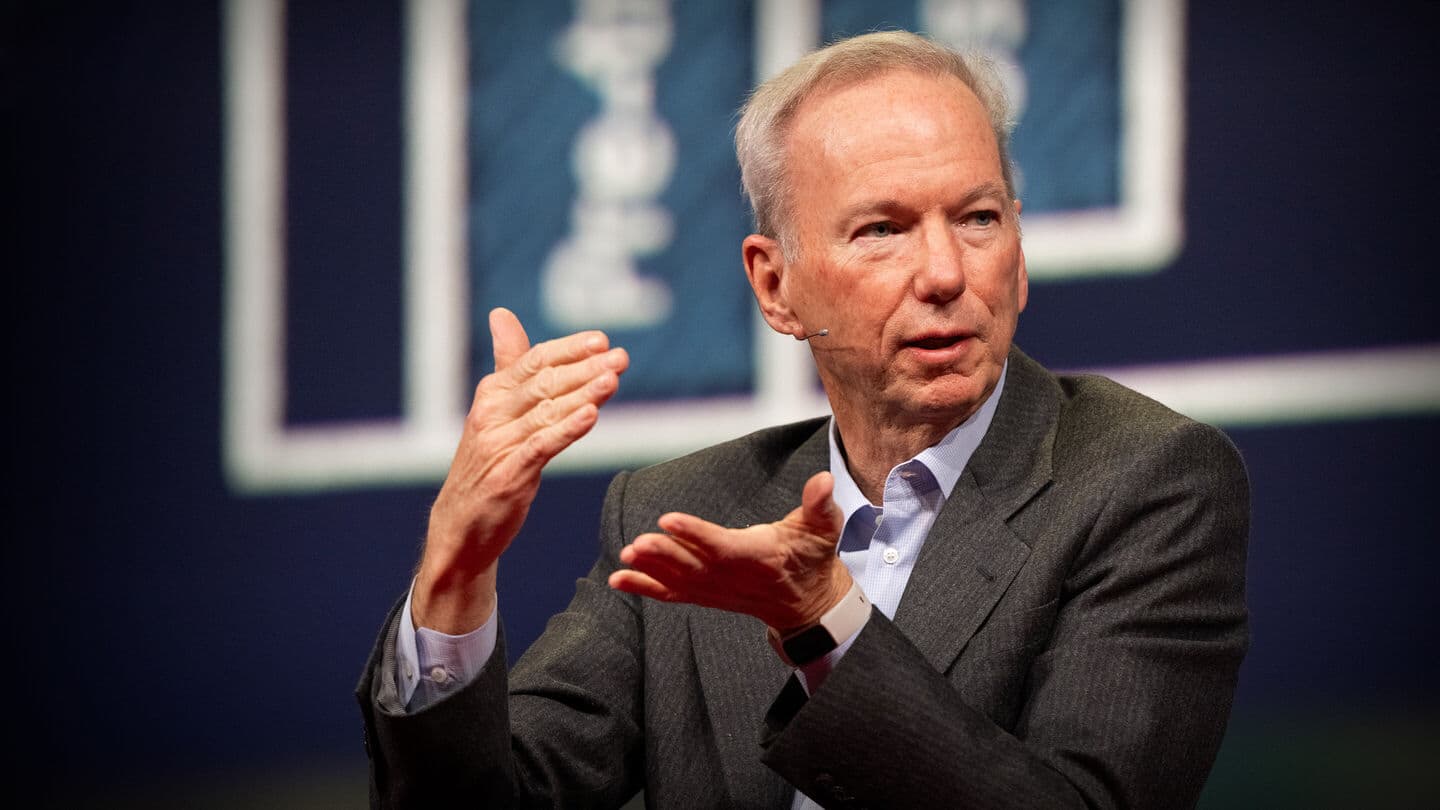
Former Google CEO dismisses AI fears—calls it new industrial era
What's the story
Former Google CEO Eric Schmidt has rejected fears of an impending crash in the artificial intelligence (AI) boom. Speaking at the RAISE Summit in Paris, Schmidt said he doesn't think this is a bubble based on his experience. "It's much more likely that you're seeing a whole new industrial structure," he added. His comments come as major tech companies continue to invest heavily in AI research and development.
Market growth
AI market expected to reach $4.8 trillion by 2033
Since the launch of ChatGPT in late 2022, tech giants have invested billions into AI development, talent acquisition, and infrastructure. Companies like OpenAI, Google, and Meta are leading this race to secure top AI talent and build necessary infrastructure. The global AI market is estimated at $189 billion in 2023 and is projected to grow to an astounding $4.8 trillion by 2033.
Hype skepticism
Many experts warn of potential AI bubble
Despite the excitement and optimism, many are wary of the possibility of an AI bubble. They fear that we could witness a repeat of the dot-com era, which ended in a market crash. Apollo Global Management's chief economist Torsten Slok recently warned that today's AI boom could be an even bigger bubble than during the dot-com era. However, Schmidt remains optimistic about AI's future prospects.
Viability indicators
Massive data centers are being built, says Schmidt
Schmidt sees the hardware demands of AI as a sign of its long-term viability. He noted that massive data centers are being built and companies like NVIDIA are supplying the necessary chips. He said, "I've never seen a situation where hardware capacity was not taken up by software." Despite concerns over potential overcapacity in two or three years, Schmidt views this as a normal cycle rather than evidence of an impending collapse.
Infrastructure needs
Electricity is the biggest hurdle to superintelligence
In a recent episode of the Moonshots podcast, Schmidt identified electricity as the biggest hurdle to building superintelligence. He warned that the US may need an additional 92 gigawatts (GW) of power to support future AI infrastructure. "AI's natural limit is electricity, not chips," he said. In a LinkedIn post, he predicted specialized AI savants in every field within five years and their potential impact on society and daily life.